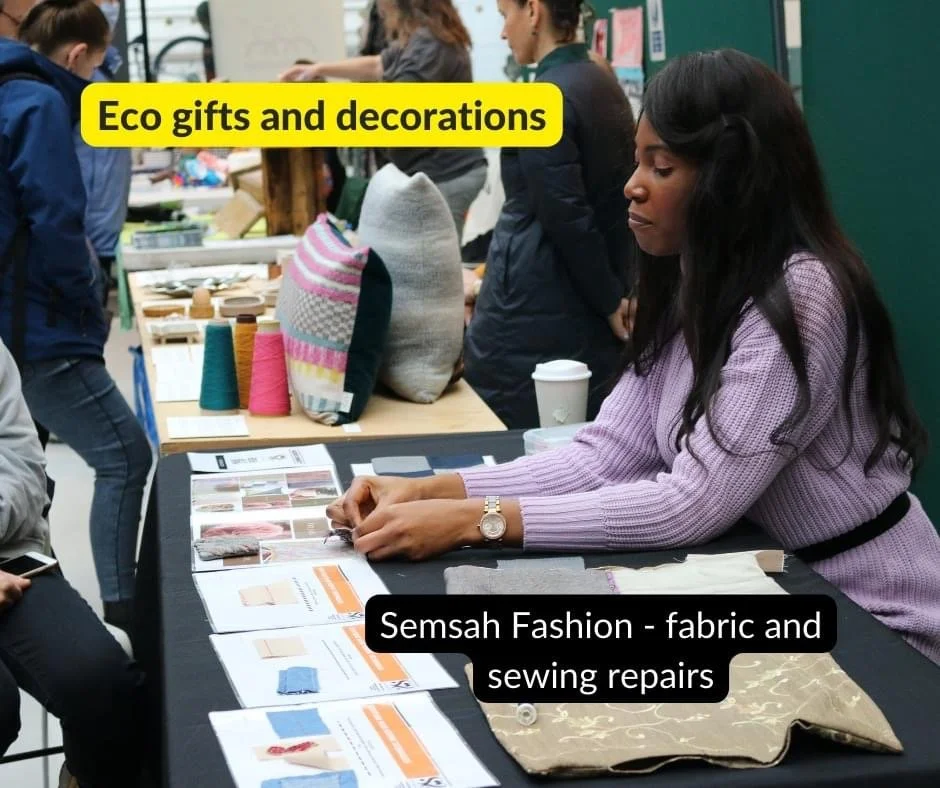Where are the skilled workers?
My recent blog post WHY START REPAIRING GARMENTS, highlights the need to find skilled workers. Artisans that know how to manage customers' expectations when items get restored. Most often when items get repaired, they won't always be as the original. The maker needs to inform the customer of what the item might look like and be able to deliver to their expectations. Mending, upcycling and making garments are skill sets, that not every sewing machinist has. The ability to invent new ways to restore an item that is broken and articulate this to customers is a skill set.
The article "Fendi Goes Back to School to Save Centuries of Italian Tradition" | BoF (businessoffashion.com), mentions the lack of young people wanting to become artisans. The increase of virtual fashion and technology has moved many away from traditional manual labour work. However, even with the rise of interest in virtual fashion, we still need our products to be made to be worn in reality. As stated in the article “Italian luxury companies are managing to fill only about half of the posts they advertise, according to Stefania Lazzaroni, director general of trade group Altagamma. That means the industry will be missing about 94,000 over the next four years.”
The problem that Fendi and many fashion businesses have, is attracting the younger generation into doing this type of skilled work. People associate work in factories, as hard labour with low wages. This is especially seen in recent news with Shein factories, Rana Plaza in Bangladesh, Boohoo Leicester factories etc. The challenge is to change the potential student’s perception of working in factories or as a skilled worker, or artisan.
Serge Brunschwig, the executive of Fendi is looking at changing this perspective through being inspired by cookery tv shows, “To become a cook was no one’s dream when I was young,” he says. There is something good in communicating the interest of this job, we just have to do the same thing.”
This is very much in line with the UK, BBC hit show British Sewing Bee. Designer Patrick Grant, a judge on the program confirmed the shortage of skilled workers, that are industry-ready. His experience of hiring sewing machinists for his Savile Row brand has not been easy. Stating the following in the article "Fashion Industry Warns Of Severe Skills Shortages Because Of "Brexit Talent Drain" :
“If we are to build a successful post-Brexit UK labour market schools and colleges need to dramatically rethink what they do for those people who are not going to end up in white-collar jobs.”
According to the National career service, the UK decline of skilled tailors and dressmakers is -8.3% and is projected a decline of -1200 jobs in 2027, due to retirement.
The absence of sewing skills taught in schools meant that 50% of Brits must ask their mothers to fix their clothing, 23% are unable to sew a button, 37% cannot alter the length of trousers and 25% cannot mend a rip in their clothing.
The Wrap report: CLOTHING LONGEVITY AND CIRCULAR BUSINESS MODELS RECEPTIVITY IN THE UK; states that almost three in five UK citizens (57%) will look at ways to repair their damaged clothing, the highest seen in women aged 55+ (68%) and women aged 18-34 (60%), and the least seen in men. In addition, 22% of items have been repaired by the owner themselves or paid service 9%.
But did you know that clothing repair extends the garment's lifespan by 1.3 years?
Yes, all the high increase of clothing going into landfills can be prevented by gaining sewing skills and creating new items from old.
This idea of reviving and restoring garments isn't new. Even in the bible, after Israel left Egypt. In the middle of a desert, God instructed skilled workers with the ability to take apart existing products and make them into new items for Israel (Exodus 31.1-7).
We have been created to recreate and not just to consume and destroy.
The ability to create is from the foundation of mankind. Yes technology and the rise of IA are taking place and could replace much of the labour work, however, we are still not there yet. And until that is effectively taking place, we are still in need of hands-on sewing skills. Therefore, fashion brands such as Fendi are looking ahead and training their future skilled workers to ensure vacancies can be filled and the quality of products remains.
Semsah invests in the future by providing workshops and programs to train future skilled workers that can become experts in restoring garments. You will be able to learn how to mend, upcycle and make garments as your business and become part of a peer group of sewing experts for support.
If you like to hear more about this new program, please sign up for more details.





